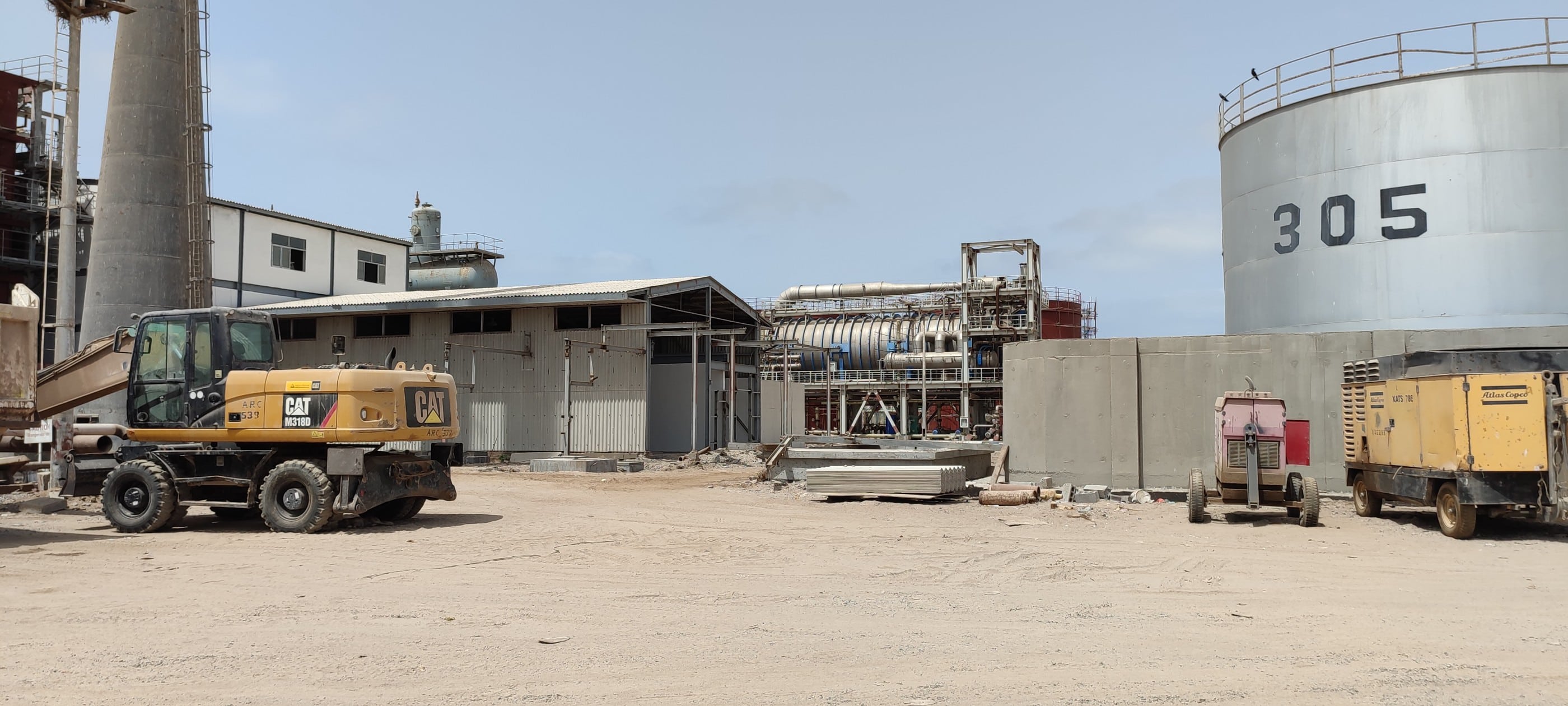
Some of the Aden Refinery (South24)
آخر تحديث في: 03-06-2022 الساعة 2 مساءً بتوقيت عدن
Raad Alrimi (South24)
Since 2014, Aden Refinery (the biggest oil refinery facility in the country) has completely halted its operations. Since then, the company has not resumed working in spite of the government’s promises amid accusations of corruption and deliberate obstruction. There have been mutual accusations between the government and the successive administrations of Aden Refinery.
Ghasan Jawad, the Head of the company’s Council of Trade Union Committees told "South24": "the suffering of Aden Refinery is a small depiction of what happens in the state. This reflects the lack of political will regarding the return of the pioneering role played by Aden Refinery”.
He added: “The state is owed to Aden Refinery with financial dues as well as fuel traders who have no interest in the resumption of Aden Refinery activities as they use the refinery’s tanks to store their own fuels”. Jawad believes that the decision to operate the Refinery’s Power Station is contingent upon political understandings”.
He added: "The state's decision to operate Aden Refinery was prior to another one to establish Petromasila Power Station. The latter has been completed with a generating capacity of more than 260 megawatts while Aden Refinery Power Station has not been operated so far although its generating capacity is just 15 megawatts”.
The newly-appointed Ahmed Mosaad Seeed, the Executive Director of Aden Refinery, admitted that there are financial flaws. He told "South24": "the state owes us with huge debts whose total value is estimated at 125 million dollars regarding the government only apart from the private sector's debts”.
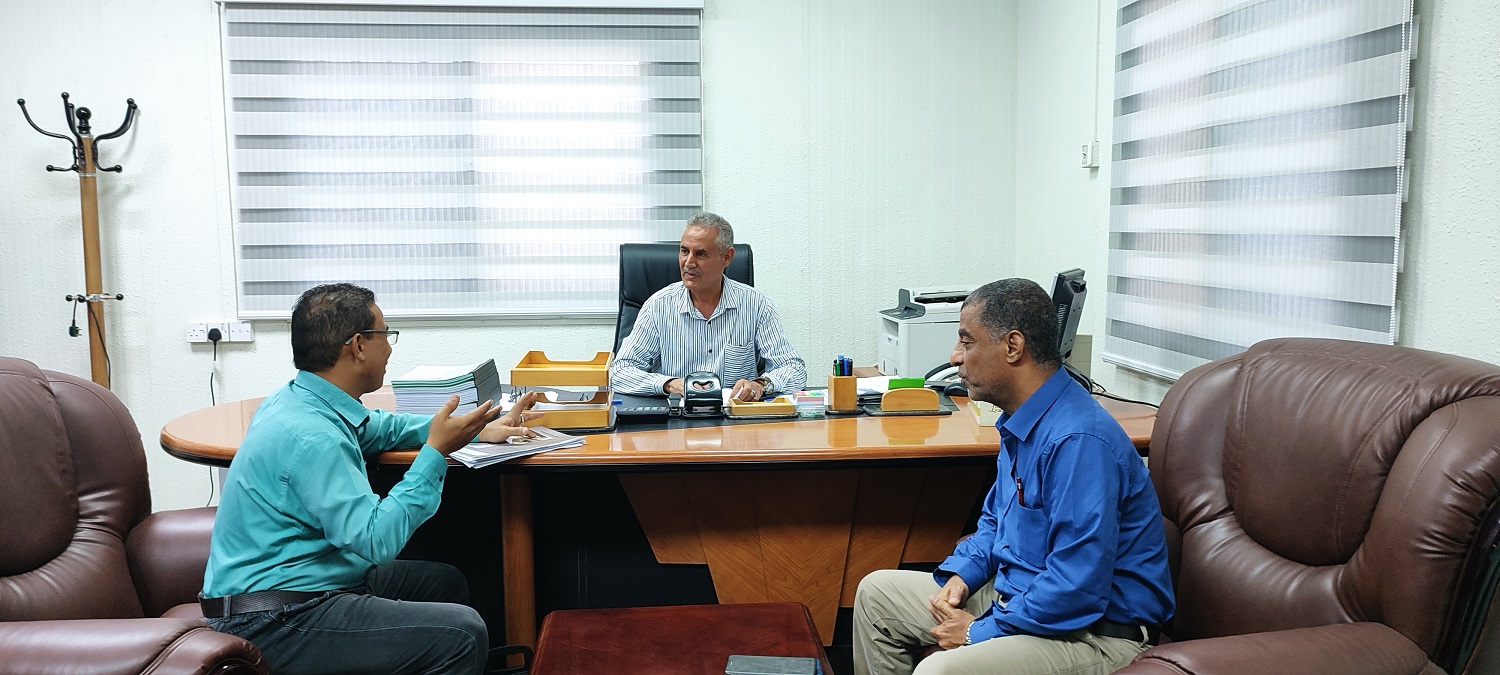
"South 24" reporter Raad Al-Rimy during the interview with Aden Refinery Executive Director.
Saeed blamed the Ministry of Finance for obstructing collecting Aden Refinery debts.
He elaborated:" The failure to collect this debt is not the responsibility of the entire government but of the Ministry of Finance. The government represented in the Prime Ministry and the Ministry of Oil supports the resuming Aden Refinery activities. However, the Ministry of Finance is the cause of such a delay. The financial aspect is the most problematic one for Aden Refinery today".
Technical troubles
Saeed attributed the delay to several factors, the most important of which are associated with technical causes related to the Refinery Power Station. He pointed out that the production of the station is not limited to electricity only. If so, “we would have demanded a number of megawatts from Al-Buraiqeh Thermal Power Station and everything would be ok''.
He added: "The station needs large amounts of water vapor and pressure of up to 600 pounds in the pipes that extends to all units. Afterwards, all parameters are cooled with amounts of water up to one million and two hundreds gallons per hour. This made it necessary for us to make secondary activities such as establishing a bridge to allow the accession of sea waters to the location of the station. This is because all heaters boil raw materials and produce them after they sustain the separation process amid high temperature".
He went on by saying: "If these highly- heated products return to the tanks, the latter would burn. So, we resorted to establishing an international bridge whose costs exceeded 7 million dollars. Without the existence of such a bridge, water could not arrive to operate Aden Refinery. The company implemented roles which should be played by the state in return for building this bridge".
He pointed out that "experts repeatedly recommended in 1990 and 2000 to replace the Refinery Power Station established in 1982.
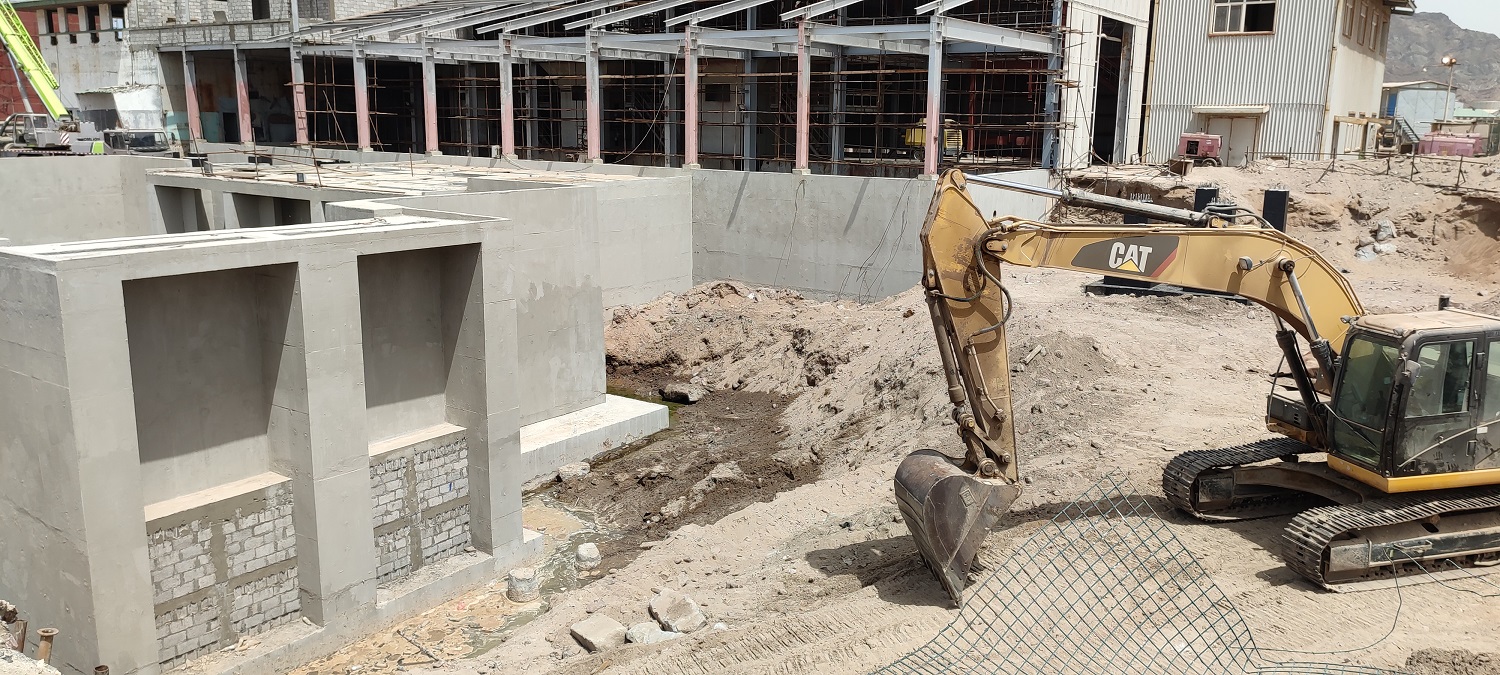
Part of the power station constructions (South24)
He said: "Because of the financial crisis, we sought to make a partial replacement in 2014. A Chinese team began this task but failed. This was practically proven when we received a raw material fuel grant to refine it in 2017. However, in each refinery process, the technical problems exacerbate in the power station and the cooling unit stops work. This increases the possibilities of the outbreak of huge fires".
Furthermore, Saeed said: "The security problems experiences by Aden led to the departure of the Chinese team to the neighboring Djibouti more than one time".
The lack of cadres
Along with the Power station, Aden Refinery suffers from another no less important problem which is the lack or the absence of technical cadres specialized in refinery activities according to Saeed.
The Refinery’s Workers Trade Union estimated that “90% of the technical department managers in Aden Refinery are selected from the Refinery's retirees. “South24” obtained a payroll list which reveals the salaries of some of those employees”.
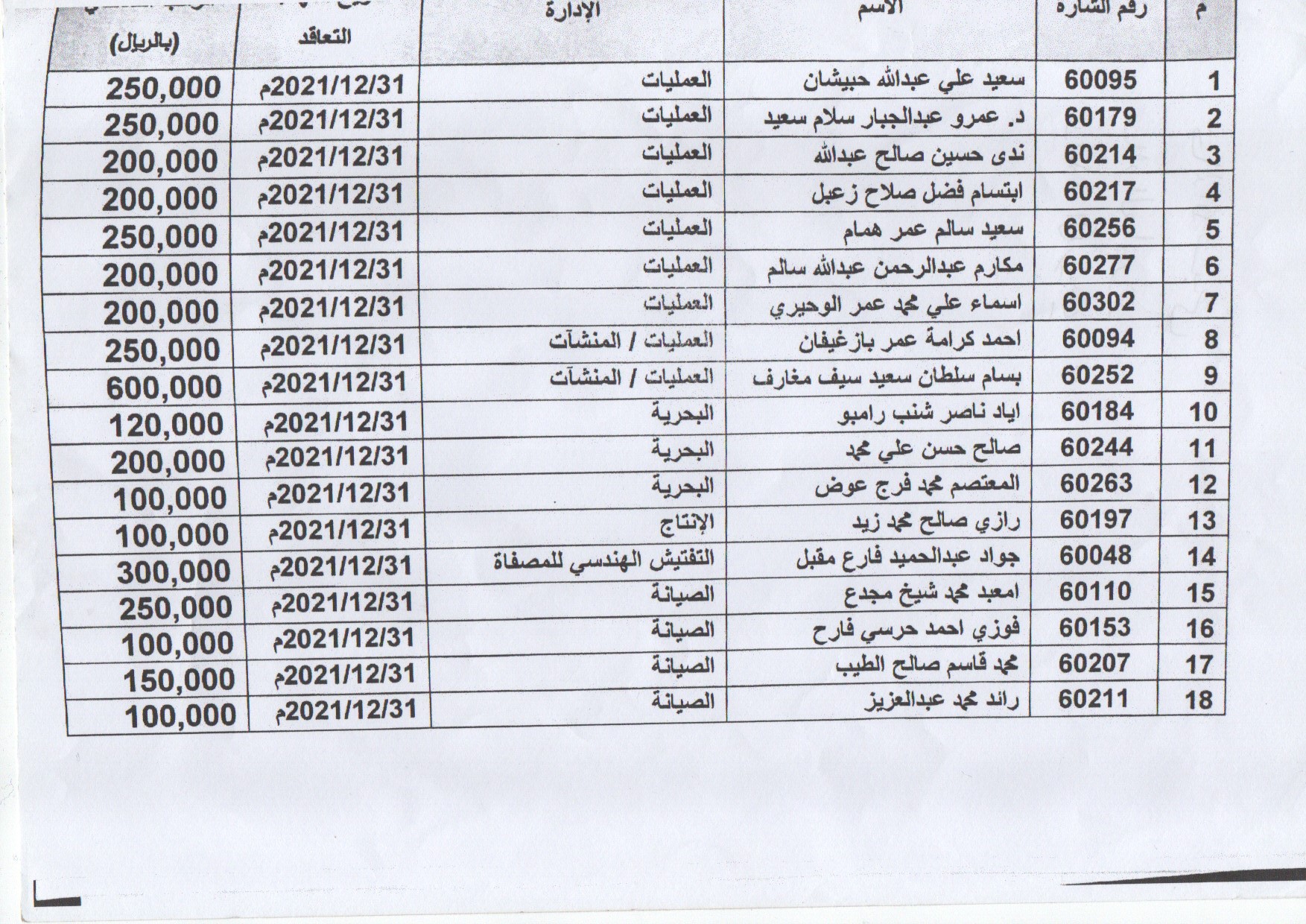
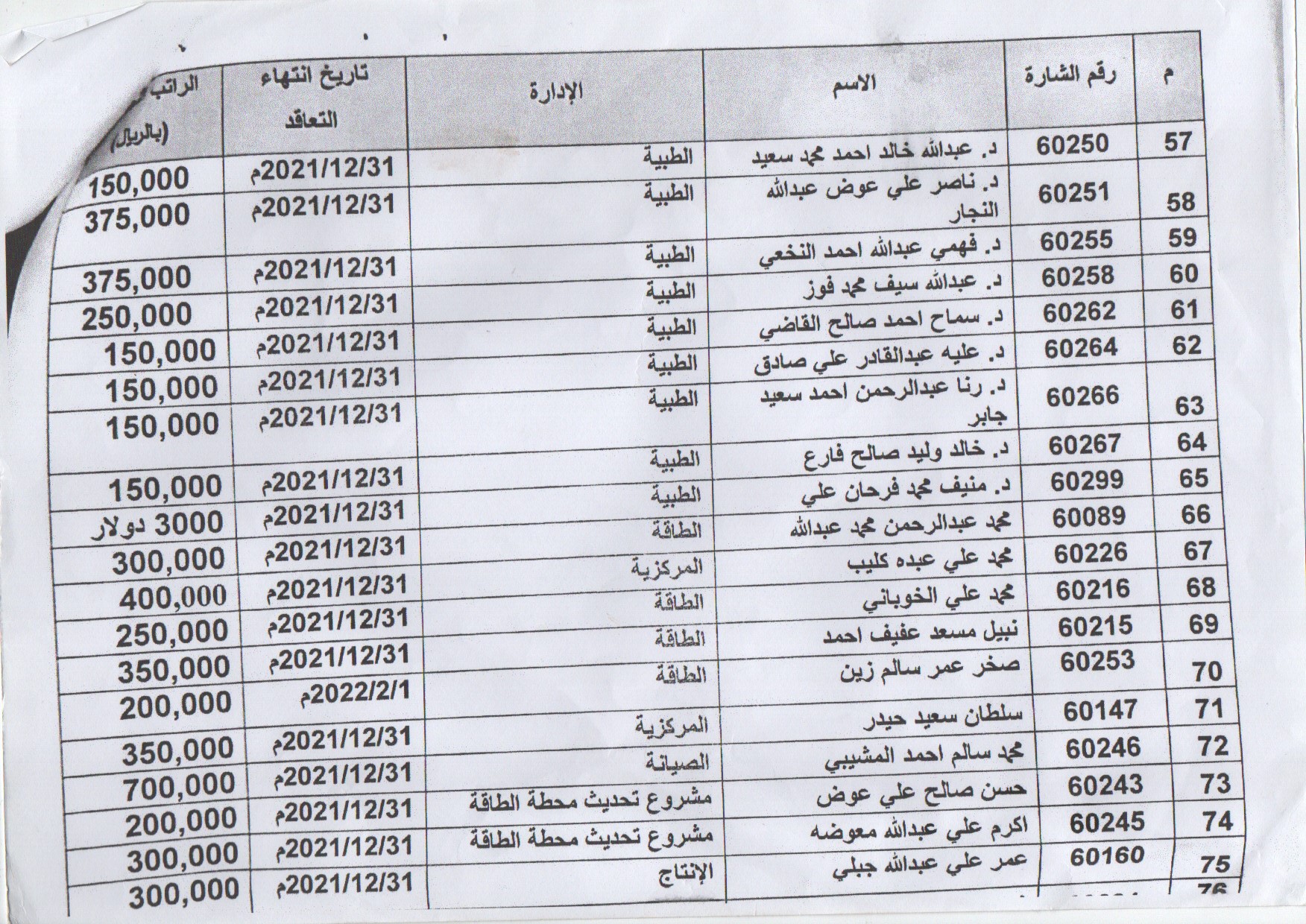
In this regard, the Director of “Aden Refinery” said:” This is considered a real disaster because the recruitment of graduates and engineers in the company almost stopped completely after the 1994 war. This was accompanied by troubles represented in the appointment of unqualified persons who don’t hold certificates. Such appointments were implemented by compliment and nepotism”.
“Most first, second and third rank departments in Aden Refinery have no alternatives. This is a real catastrophe. The reason behind this is that recruiting qualified people has stopped for a long time and continues to this day”. According to him “This pushed the Aden Refinery leaders to resort to the long-term cadres and retirees.
Neglect
He indicated that “Aden Refinery was neglected and fell into oblivion by the governments twice; the first was in the wake of the 1994 War while the second came after the 2015 war. The Refinery provided military equipment which liberated Aden in the latest war with fuel. Today, the favor should be returned to Aden Refinery which has to be treated in a fair way”.
He added: “One form of neglect against “Aden Refinery is the rejection by the past governments of adopting studies for upgrading Aden Refinery. Implementing such studies would have guaranteed promoting Aden Refinery to global standards and refining oil using modern ways”.
According to him, a Chinese company delivered a study and an offer to upgrade Aden Refinery in return for some of its products. However, this was rejected by the government”.
He added: “Today, this generous offer was renewed and awaits governmental approval. These companies won’t work without the government’s approval, especially that the study’s economic feasibility is safe and guaranteed”.
Upgrade or privatization?
As for the development and upgrade plans, he said that “we aspire that the upgrade process will be carried out over several phases. All of this is supervised by Dr. Mohammed Hassan, Adviser to the Minister of Oil and Head of the Modernization Department in Aden Refinery”. We seek to present this vision to the government, the PM and the STC. Foreign companies would participate in achieving this while providing the private sector space in the upgrade process represented in attachments to the Refinery and petroleum plants”.
In response to “South 24”’ question about whether these moves are part of privatizing Aden Refinery, he said: “We completely deny this. Working with the private sector in Aden Refinery will be a participatory process. The impact of this won’t be limited to the company’s administration and employees but even citizens will feel it”.
He added: “If Aden Refinery resumes work and regains its pioneering position, fuel will be available and citizens won’t suffer from power outage. Additionally, the whole process will improve fuel prices because local raw materials will be refined without depending on purchasing it. Thus, the state and not the traders will control it”.
Corruption and pressure
Jawad accused the company’s consecutive administrations of making “all forms of corruption”. “South24” obtained a document which proves the attempt of former Aden Refinery administration to reduce financial dues related to a private company in return for cranes and machinery rented by this company”.
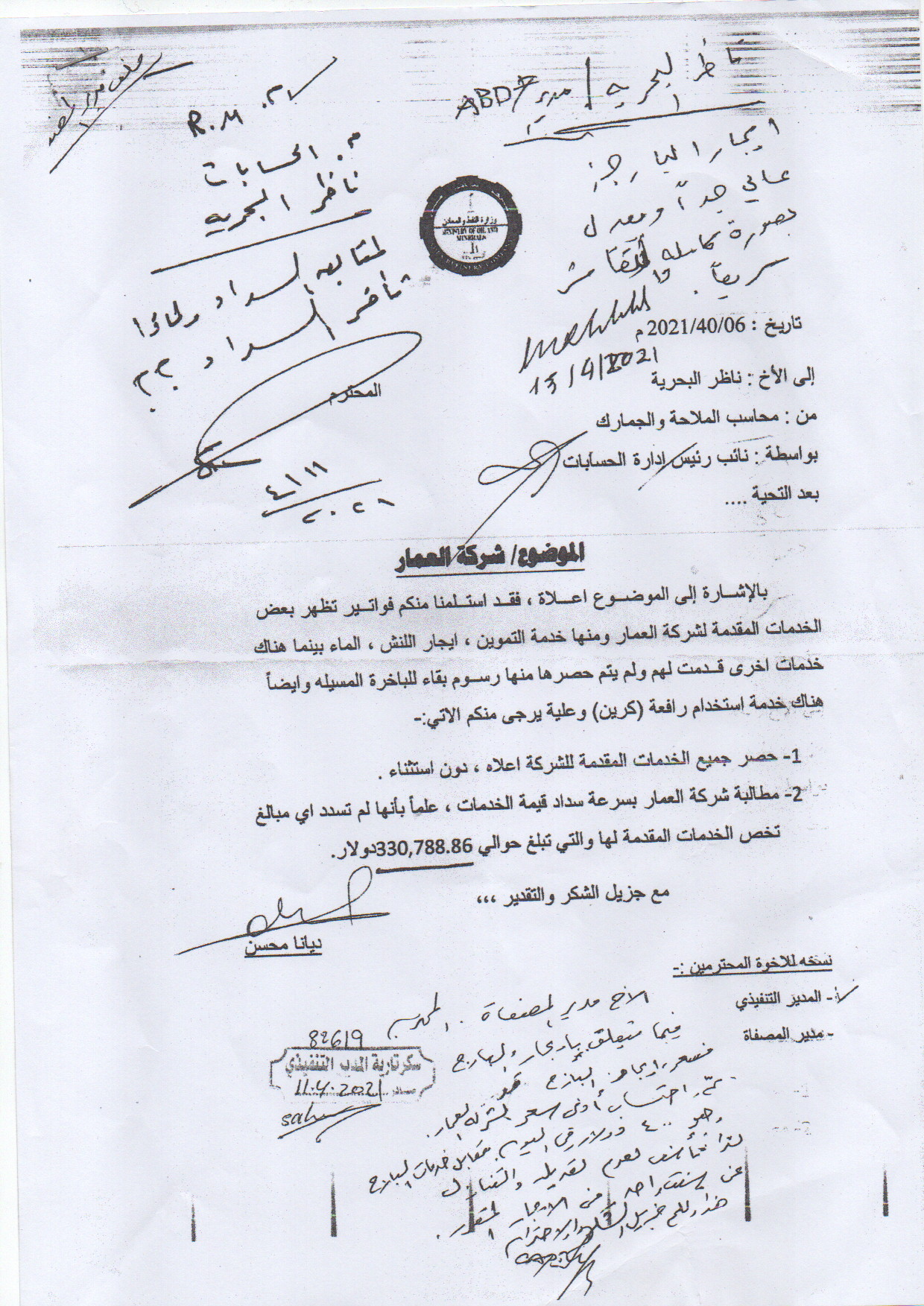
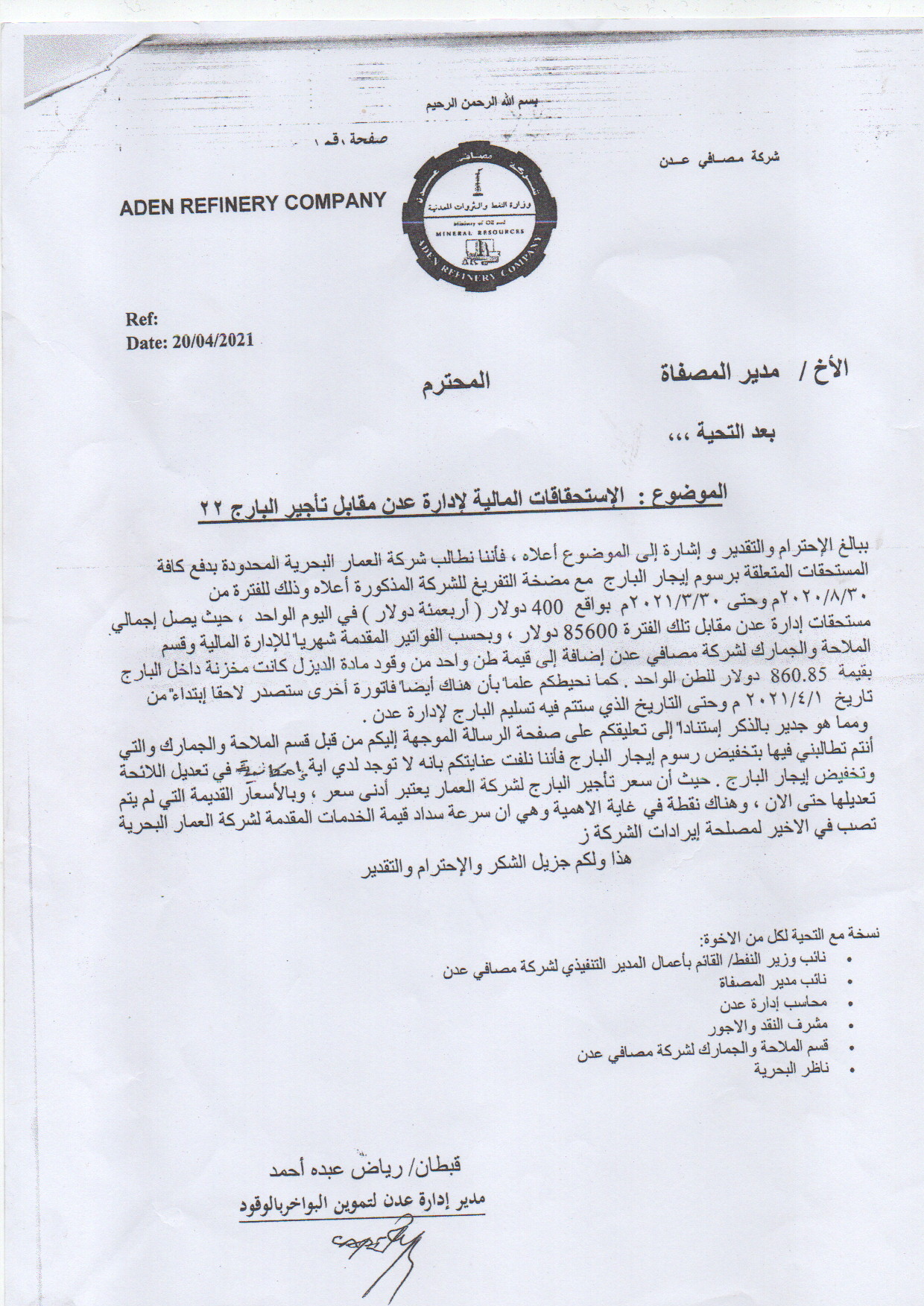
In 2016, the official Saba news agency said that the former Prime Minister, Ahmed Bin Daghr, instructed the then Aden Refineries Administration not to sell the company’s assets without the government’s knowledge. Bin Daghr said the government didn’t know about such a selling process [1].
“South24” obtained a letter sent by the Aden Refinery Trade Union in December 2010 directed to “whom it may concern” about selling the Aden Refinery assets and several corruption cases.
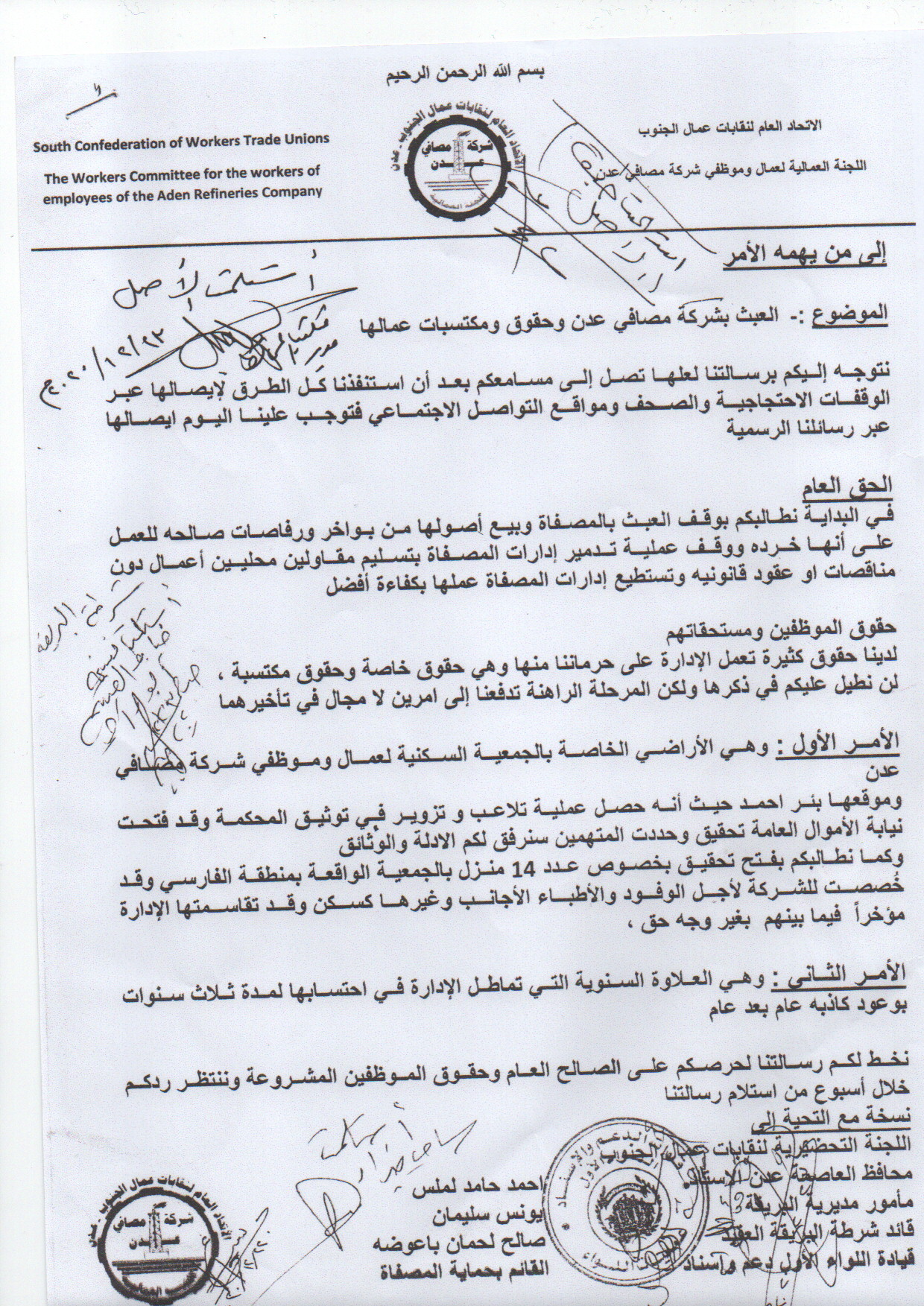
However, the company’s Executive Director said: “There is no existence of such a level of corruption claimed by the Trade Union. Corruption is a general word which they throw against everyone. Every accusation should be associated with an investigation committee”. However, he admitted the existence of “political pressures which require reducing the storage price for certain merchants, and other pressures to grant loans to certain merchants and allow to be paid later”.
He continued: “However, This never happens, these things exceeds our ability to refuse”
It is worth mentioning that the establishment of the Aden’s Refinery was completed in 1954 by British “BP” with an annual capacity of 170,000 barrels which increased to 8.5 million metric tons annually today. The state seized its ownership in 1977 and it was later operated by Aden Refinery Company.
Despite the old age of the refinery (60 years), it continued to work efficiently due to constant maintenance before its production capacity was reduced to 100,000 barrels per day. Later, its operations stopped completely with the outbreak of the latest Yemen war in 2014.
Note: “South 24” Office in Aden contacted the Yemeni Prime Minister to obtain comments on the accusations claimed in this report. We were referred to the Ministry of Oil and Minerals. We contacted the Oil and Minerals Minister, Abdulsalam Baaboud, but no response were given.

قبل 3 أشهر
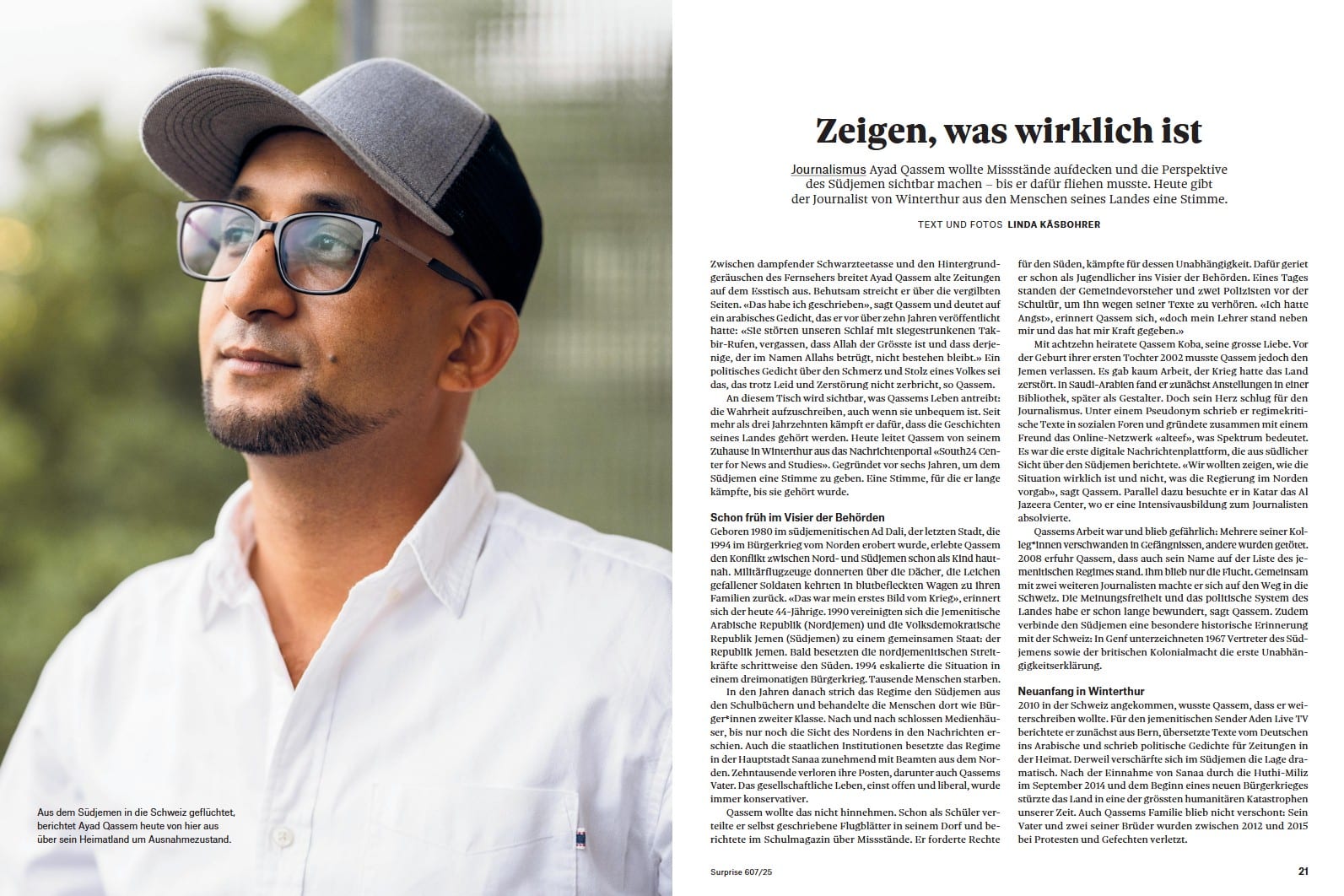
قبل 3 أشهر